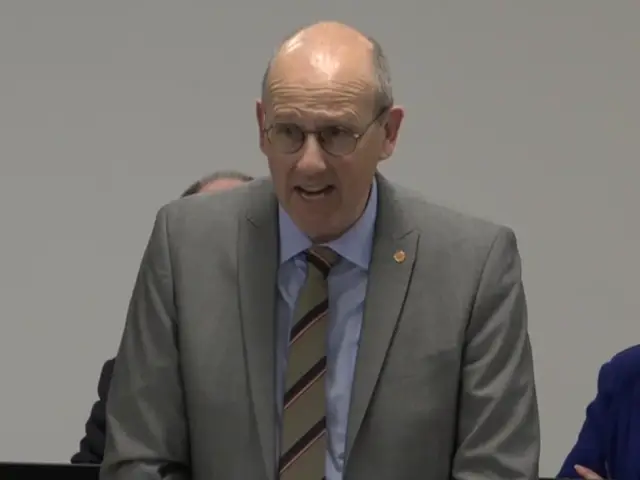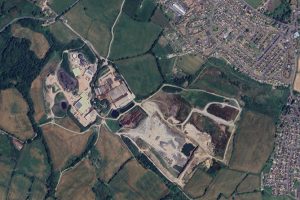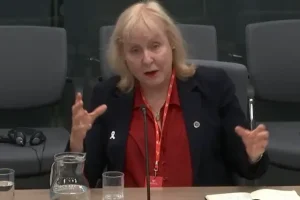THE RAPID and largely unregulated proliferation of battery storage developments is becoming an urgent safety issue in many parts of Wales, a Senedd Member warned.
Plaid Cymru’s Llŷr Gruffydd said he is not opposed to battery energy storage systems (BESS), recognising it as “vital” infrastructure in the “national mission” to reach net zero.
But the Plaid Cymru politician warned of risks to people’s safety “in a rush to deliver developments without the proper scrutiny they deserve”.
He told the Senedd: “For BESS to truly serve Wales’s net-zero goals, development must be guided by strong planning policy, strong safety standards and, of course, strong and meaningful community engagement.
“Projects should be well sited, they should be transparent and designed with public trust in mind. In a nutshell: BESS technology isn’t a luxury, it’s a necessity for a net-zero Wales.”
Leading a debate on June 4, Mr Gruffydd said: “Clean energy and smart infrastructure must be encouraged but a careful balance needs to be struck. Too often, communities are an afterthought in this conversation – this energy transition needs to put people first.”
He warned most of the proposed projects are not happening in remote industrial parks. “They’re being planned within metres of homes, schools and places of work,” he said.
“And the concerns raised by local residents aren’t nimbyism [not in my back yard] – they’re real, evidence-based fears, particularly around thermal runaway fires, which have caused serious incidents in countries around the world.”
Mr Gruffydd, who chairs the Senedd climate committee, raised the example of a fire at Moss Landing, one of the world’s largest BESS facilities in California, in January.
He told Senedd Members: “The fire destroyed approximately 80% of the batteries… and led to the evacuation of around 1,500 residents due to concerns over toxic smoke emissions.”
He explained that thermal runaway can cause large, long-lasting fires which, in some cases around the world, have taken millions of litres of water to extinguish.
Mr Gruffydd said some of the technology used at Moss Landing is identical to what is proposed in many of the 80-plus BESS developments under consideration in Wales.
He cautioned that in places like Northop and Gwyddelwern in his north Wales region, communities face plans for installations only 35 to 120 metres from some homes.
The politician emphasised: “We can’t build public confidence in this technology unless we put transparency and safety at the heart of how it’s planned and how it’s delivered.
“The urgency of decarbonisation is real – we all feel it – but we mustn’t let that urgency override the need for caution and care.”
Mr Gruffydd said the Ynni Celyn scheme in Gwyddelwern would house millions of batteries across nearly 1,000 shipping containers on a 75-acre greenfield site near the small village.
He warned: “A fire at that site would pose a serious risk to the River Dee catchment which, of course, provides drinking water for over one million people and the environmental consequences there could be quite devastating.
“Now, we can’t ask residents to simply hope that nothing goes wrong. That isn’t good enough, is it? Developers and government must guarantee safety – no exceptions.”
Mr Gruffydd urged Welsh ministers to move away from a “hub-and-spoke” model to a “spider’s web” approach to spread infrastructure more evenly and fairly across Wales.
He called for a temporary halt on large-scale BESS projects given the risks, oversight gaps and deep community concern. “A moratorium gives us time to do things right,” he said.
Responding for the Welsh Government, Rebecca Evans told the Senedd energy storage has an important part to play in the transition to a low-carbon economy.
Wales’ economy secretary said decisions on appropriate locations for battery developments are made through local planning processes under national ‘Planning Policy Wales’ guidance.
She said: “Planning applications are subject to consultation with key stakeholders, and the fire and rescue authorities are consulted on major development proposals.
“The planning system is able to prevent and mitigate potential harm resulting from the development proposals by imposing conditions on planning permissions.”
Ms Evans, who is responsible for energy and planning as well as the economy, would not comment on specific proposals to avoid prejudicing appeals which could land on her desk.
















